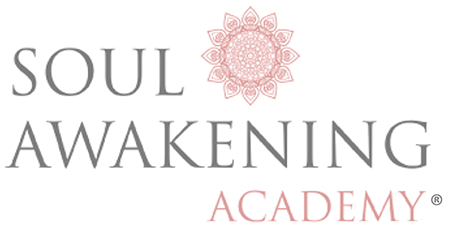Have you ever wondered why the same relationship dynamics keep playing out like you’re following an invisible script?
Our past traumatic experiences, often interwoven and complex, influence the way we interact with the world. Understanding how these play out in our lives can shape our journey towards self-awareness and recovery.
By recognising these early sources of pain, we can break free from cycles and move toward a more empowered and resilient self and a healthier, more fulfilling life.
Trauma Bonds, Attachment Styles & Learned Behaviors
Relationships are influenced by trauma bonds, attachment styles, and learned behaviours that operate beneath the surface, impacting our interactions in ways we may not fully understand. These scripts, formed through past experiences, can significantly affect the quality and dynamics of our relationships.
Trauma Bonds
Imagine being tied to someone who hurts you, yet you feel fiercely loyal to them.
That’s a trauma bond.
It’s being stuck in a loop where you’re drawn to someone bad for you—thanks to a mix of loyalty, dependency, and a back-and-forth pattern of kindness and cruelty. Breaking free is especially tough in these toxic relationships.
Being in a trauma bond might look something like this:
Isolation: You find yourself isolating from friends and family, especially those who express concern about your relationship.
Emotional Dependency: Despite the hurt, you have a deep emotional reliance on your partner, swinging from highs to lows based on their actions or moods.
Intermittent Reinforcement: The relationship is a roller coaster. Moments of kindness and affection are sprinkled amid hurtful episodes, keeping you hopeful about what ‘could be.’
Self-Blame: You catch yourself shouldering the blame for the problems in the relationship.
Denial & Rationalisation: You find reasons to justify your partner’s actions.
Attachment Styles
Childhood, ideally a time of growth and joy, can for many be coloured by hurtful experiences that leave lasting emotional impacts. Our attachment styles are shaped by early interactions with caregivers, which then influence how we relate to others as adults.
Understanding early traumas opens a pathway to healing, allowing us to confront and navigate these deep-seated wounds.
If you had a nurturing upbringing, you’re likely to have secure relationships.
But if, like many, you had a less stable environment, you might learn to cling too tight, push people away, or flip-flop between the two. We tend to continue these ways of relating into adulthood, but it’s important to note that attachment styles are not fixed and can change over time.
The four primary attachment styles are:
Secure: Comfort with intimacy and independence, leading to open communication and mutual respect without fear of abandonment or feeling smothered in the relationship.
Anxious: Intense craving for closeness paired with a fear of abandonment, often causing a continual need for reassurance and connection.
Avoidant: A preference for emotional distance and self-reliance, often avoiding deep connections.
Disorganised: Conflicting behaviours that switch between seeking closeness and pushing it away, creating instability and confusion in relationships.
Learned Behaviors
As kids, we observe and absorb behaviours from our surroundings. These learned behaviours influence our adult interactions, from the way we express affection to how we manage conflicts and build relationships. Recognising and adjusting these ingrained habits can lead to more harmonious and fulfilling connections.
A few ways that learned behaviours manifest in adults:
Conflict Avoidance: You might avoid addressing issues directly, leading to unresolved problems and internal stress, wanting to maintain peace.
People-Pleasing: You may find yourself struggling to say no, often overcommitting or sacrificing your well-being to keep others happy.
Perfectionism: You might set unrealistically high standards for yourself and others, leading to dissatisfaction and a fear of failure.
Hyper-Independence: You may be reluctant to ask for help, push others away, or feel uncomfortable in situations where you’re not in control.
Amid trauma bonds, attachment styles, and learned behaviours, there’s a powerful chance for growth and rebirth. Recognising these is the first step toward reclaiming your narrative.
Know this: you can change the deep-seated patterns that have directed your life. Healing is possible! And it isn’t about leaving the pain in the past, it’s about stepping confidently into a future of self-awareness and genuine empowerment.
The Complex Web of Love & Trauma
Stepping into the heart of love and trauma reveals a nuanced interplay between our desires and hidden wounds. At the core of many romantic entanglements, trauma steers relationships on an unconscious level, influencing how we trust, share intimacy, and communicate.
Do you hesitate to trust your partner?
Do you fear intimacy, associating closeness with hurt?
Do you struggle to communicate needs effectively because those efforts have been dismissed in the past?
Do you find yourself pulling away from relationships as they become more serious?
Do you struggle with setting or respecting boundaries within relationships?
Do you question your worthiness of love and affection?
These are not simply quirks in your character but signs of earlier experiences that have shaped how you relate in relationships.
However, in an effort to understand and heal, we can uncover opportunities for growth and deeper connection.
Embracing our past pain as a catalyst for empowerment can profoundly transform our approach to trust, intimacy, communication, self-sabotage, and boundaries.
Here’s how we can shift our perspective:
Let past betrayals be lessons, not life dictators. By understanding and healing from these wounds, you open ourselves to trust again, laying the groundwork for strong, more authentic connections.
Transform the fear of closeness into a path for joyous connection. Learning that intimacy enriches rather than harms allows you to lower your guard and welcome the beauty of close bonds.
Your voice matters. Overcoming past dismissals empowers you to express your needs and desires with confidence, cultivating understanding and respect in your relationships.
Recognise avoidance as a protective reflex, not your destiny. By confronting your fears, you can engage more mindfully in relationships, seeing them as opportunities for growth rather than pain.
Embrace the power of boundaries as a form of self-respect. By setting and respecting healthy limits, you nurture your well-being and encourage respectful and fulfilling relationships.
By harnessing the lessons of your past, you can create relationships that thrive. Remember, the human mind is resilient and has a profound capacity for transformation!
This journey from trauma to healthy love is a bold path that requires courage, self-reflection, and a commitment to healing—and every step leads you closer to a relationship that blossoms with trust, vibrates with wholesome connection, and thrives on clear, heartfelt communication…a love that feels GOOD.
Navigating Trauma Across All Relationships
Naturally, deeply ingrained past experiences also ripple across other aspects of our lives, from our day-to-day to friendships and family, and even professional settings.
Let’s unpack how old scripts may play out in other areas:
Ever feel like social gatherings are more of an obstacle than a chance to connect?
Does a small hiccup sometimes feel like a mountain to climb?
Is opening up to friends and family more daunting than just keeping things to yourself?
Find yourself always playing the caregiver, even when you’re the one needing care?
Does the thought of leading a team send you running?
Do you find yourself juggling more than you can handle, constantly downplaying your own needs and achievements?
Understanding the impact of past trauma across various relationships sets us up for what comes next: how to cultivate new, healthier behaviours on a journey to self-empowerment.
Let’s dive into how to make this a reality.
Cultivating New Behaviors for Lasting Change
Regardless of your starting point, learning how to work through trauma is possible!
And while recognising how trauma affects your adult relationships is a start, the true transformation happens with actionable steps and strategies by tapping into the resources available to you.
Let’s look at some ways you might choose to walk this journey:
Embrace Neuroplasticity
Remember your brain has an incredible ability to rewire itself. Engage in activities that promote positive thinking and behaviour to foster new, healthier neural pathways.
Seek Support
You don’t have to do this alone! Here are some support systems to consider:
Professional Therapy
A professional can offer insights, coping strategies, and a structured path to healing.
Trauma-Informed Coaching
Coaches specialising in trauma can provide personalised guidance and support. You may choose to work solely with a coach or in tandem with a therapist.
Community Groups
Connecting with others who share similar experiences can offer understanding, encouragement, and a sense of belonging.
Self-Compassion Practices
Be kind to yourself. Practice gratitude journaling, affirmations, and self-care routines. Healing doesn’t happen overnight, and self-compassion is important!
Practice Mindfulness
Incorporate mindfulness into your daily routine to stay present and reduce stress; this helps manage emotional responses and break the cycle of maladaptive behaviours.
Celebrate Progress
Acknowledge every step forward, no matter how small. Celebrating progress reinforces positive changes and motivates you to keep going.
Healing is not a destination but a journey of
rediscovering your inner resilience.
Addressing trauma is not about erasing your past but gaining a deeper insight into it and applying healing practices. Change and transformation are possible, enriching every area of your life with deeper connections, improved communication, and inner resilience.
Through these steps, you’re not just overcoming past pains but turning them into pillars of strength, allowing you to reshape your life with clarity and purpose. This journey of reclaiming your well-being is a step toward rewriting your narrative with empowerment at its core.
Remember: Your dedication from trauma to transformation
is a testament to your unyielding strength.
Resources
Check out my NEW training:
Breaking Free: Transforming Relationships, Unraveling Attachments, and Rewriting Behaviors
Interested in becoming a trauma-informed coach?
Sign up for my Become A Trauma-Informed Spiritual Facilitator Course
Weave mindfulness into your coaching practice:
Mindfulness-Based Cognitive Behavioural Coach Diploma
Join our comprehensive Master Training:
Become a Master Spiritual Life Coach, Trauma Healer & Energy Psychologist
Holistic Health & Mind-Body course for personal growth & guiding clients:
Holistic Health & Wellness Coach Diploma
Discover how to thrive as a Spirtual Life Coach:
Introduction to Spiritual Life Coaching
Further Learning
Folkman S. The case for positive emotions in the stress process. Anxiety Stress Coping.
https://pubmed.ncbi.nlm.nih.gov/18027121/
Simpson JA, Steven Rholes W. Adult Attachment, Stress, and Romantic Relationships.
https://www.ncbi.nlm.nih.gov/pmc/articles/PMC4845754/
Sagone E, Commodari E, Indiana ML, La Rosa VL. Exploring the Association between Attachment Style, Psychological Well-Being, and Relationship Status.
https://www.ncbi.nlm.nih.gov/pmc/articles/PMC10047625/

